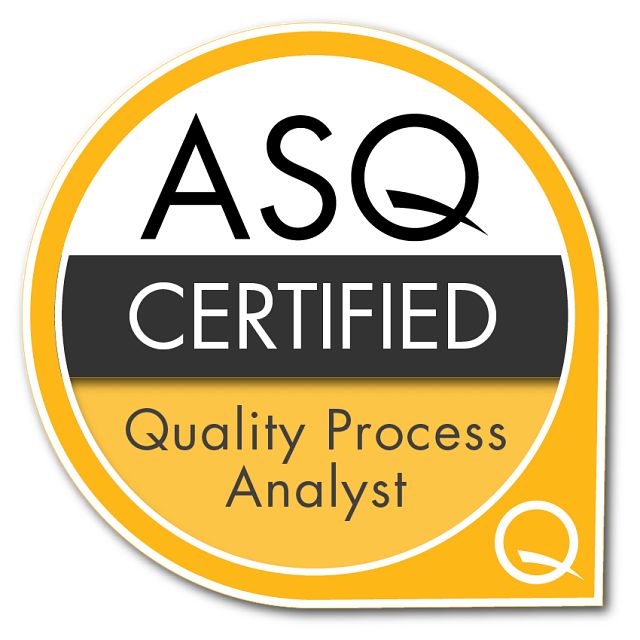
WHO SHOULD CERTIFY?
The Certified Quality Process Analyst (CQPA) is a professional certification offered by the American Society for Quality (ASQ) that recognizes individuals who have demonstrated knowledge and skills in the area of quality process analysis and improvement. As a paraprofessional, a Certified Quality Process Analyst (CQPA) typically works under the direction of quality engineers or supervisors to analyze and solve quality problems, as well as to identify opportunities for improvement in various processes.
To obtain the CQPA certification, individuals must pass a certification exam that covers topics such as quality tools and techniques, statistical process control, process improvement methodologies, and quality management systems. The certification is designed for individuals who are either recent graduates or have some work experience in the field and want to demonstrate their knowledge and expertise in quality processes.
By obtaining the CQPA certification, individuals can demonstrate their commitment to quality and their ability to contribute to quality improvement projects. It can also enhance their career prospects and help them stand out in a competitive job market.
Thank you for sharing this information. The Certified Quality Process Analyst (CQPA) certification is offered by the American Society for Quality (ASQ), and it is designed for individuals who are interested in building a career in the field of quality management.
As you mentioned, a Certified Quality Process Analyst (CQPA) is a paraprofessional who works under the direction of quality engineers or supervisors to analyze and solve quality problems, as well as to participate in quality improvement projects. The CQPA certification demonstrates that an individual has a solid understanding of quality tools and processes and can apply them to improve the overall quality of products or services.
To become a Certified Quality Process Analyst (CQPA), an individual must meet certain eligibility requirements, including education and work experience. They must also pass a written exam that covers topics such as quality concepts and tools, statistical process control, and quality improvement techniques.
Overall, the CQPA certification can be a valuable credential for individuals who want to demonstrate their knowledge and expertise in the field of quality management and pursue career opportunities in this area.
The role of a Certified Quality Process Analyst (CQPA) is to support and assist quality engineers or supervisors in analyzing and solving quality problems, as well as in carrying out quality improvement projects. A Certified Quality Process Analyst (CQPA) may be a recent graduate or someone with work experience who wants to demonstrate their knowledge of quality tools and processes.
The responsibilities of a Certified Quality Process Analyst (CQPA) may include:
- Collecting and analyzing data related to quality issues and performance metrics
- Identifying trends and patterns in data to help identify root causes of quality problems
- Conducting audits and inspections to ensure compliance with quality standards and regulations
- Developing and implementing quality improvement initiatives, such as process improvement projects and corrective action plans
- Communicating quality-related issues to team members and management, and providing recommendations for improvement
- Utilizing various quality tools and methodologies, such as statistical process control, Six Sigma, and Lean, to improve processes and reduce defects.
To become a Certified Quality Process Analyst (CQPA), individuals must typically complete a certification program or exam, which covers topics such as quality management principles, statistical analysis, problem-solving techniques, and process improvement methodologies. These certification programs may be offered by organizations such as the American Society for Quality (ASQ) or other professional associations. By obtaining certification, individuals can demonstrate their expertise and commitment to quality, which can help them advance in their careers and improve their job prospects.
Download the Quality Process Analyst Body of Knowledge.
Download the Quality Process Analyst Certification Fact Sheet

